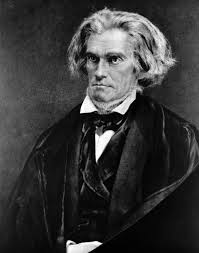
Breaking News
 Trump Rejected Israeli Attack Plan On Iran & Now Hawks Are Fuming
Trump Rejected Israeli Attack Plan On Iran & Now Hawks Are Fuming
 BREAKING: Appeals Court Denies Trump Admin Effort to Block Return of Alleged MS-13 Gang Member
BREAKING: Appeals Court Denies Trump Admin Effort to Block Return of Alleged MS-13 Gang Member
 Drugged Into Oblivion: More Than 60 Percent Of U.S. Adults Admit...
Drugged Into Oblivion: More Than 60 Percent Of U.S. Adults Admit...
 Military "Vaccines" - 5 Common Patterns Linking the Deception
Military "Vaccines" - 5 Common Patterns Linking the Deception
Top Tech News
 Scientists reach pivotal breakthrough in quest for limitless energy:
Scientists reach pivotal breakthrough in quest for limitless energy:
 Kawasaki CORLEO Walks Like a Robot, Rides Like a Bike!
Kawasaki CORLEO Walks Like a Robot, Rides Like a Bike!
 World's Smallest Pacemaker is Made for Newborns, Activated by Light, and Requires No Surgery
World's Smallest Pacemaker is Made for Newborns, Activated by Light, and Requires No Surgery
 Barrel-rotor flying car prototype begins flight testing
Barrel-rotor flying car prototype begins flight testing
 Coin-sized nuclear 3V battery with 50-year lifespan enters mass production
Coin-sized nuclear 3V battery with 50-year lifespan enters mass production
 BREAKTHROUGH Testing Soon for Starship's Point-to-Point Flights: The Future of Transportation
BREAKTHROUGH Testing Soon for Starship's Point-to-Point Flights: The Future of Transportation
 Molten salt test loop to advance next-gen nuclear reactors
Molten salt test loop to advance next-gen nuclear reactors
 Quantum Teleportation Achieved Over Internet For The First Time
Quantum Teleportation Achieved Over Internet For The First Time
 Watch the Jetson Personal Air Vehicle take flight, then order your own
Watch the Jetson Personal Air Vehicle take flight, then order your own
 Microneedles extract harmful cells, deliver drugs into chronic wounds
Microneedles extract harmful cells, deliver drugs into chronic wounds
The Federal Government Did Not Create the States

The then mayor of Charleston, South Carolina, John Tecklenburg, said that "while we acknowledge Calhoun's efforts as a statesman, we can't ignore his positions on slavery and discrimination." The reason why, in his opinion, "slavery and discrimination" could not be ignored, was that Black Lives Matter were at the height of their political power, mounting protests in the streets of Charleston in the wake of the George Floyd riots.
In his commitment to "not ignoring slavery and discrimination" he was prepared to overlook everything else said or done by a man whom he admitted to be an influential statesman. Such destruction of historic statues illustrates how political expediency causes politicians to pursue a destructive course of action that will have deleterious longer-term implications. The mayor of Charleston allowed the temporary political furor surrounding BLM, which has now faded away from public discourse almost as quickly as it began, to override the importance of Calhoun's legacy.
In his book, Calhoun: A Statesman for the 21st Century, the great historian Clyde Wilson emphasizes that Calhoun was "South Carolina's greatest son" and also "an internationally recognized statesman and philosopher." He was not merely a politician representing the partisan perspectives of the South, but also a statesman, meaning "something of a prophet—one who has an historical perspective and says what he believes to be true and in the best long-range interest of the people, whether it is popular or not." By contrast, a mere politician is someone who "says and does whatever he thinks will get or keep him in power." In highlighting the value of Calhoun's legacy for contemporary political discourse, Wilson observes that, "Statesmen were rare in Calhoun's time. Today they have disappeared entirely. We know that Calhoun was a statesman because his words about government are as true and relevant today as they were in his time."
One of the most important areas of contemporary debate where it is important to distinguish the statesmen from the politicians is the question of constitutional interpretation. Unlike many politicians today, for whom the Constitution means whatever they would like it to mean, Calhoun approached constitutional questions from a philosophical perspective. He understood the Constitution to represent specific principles, rather than being simply a document that could mean almost anything, a mere starting point for whatever political argument one might wish to make. Thus, Calhoun's legacy is relevant not only in understanding the debates that raged in his own time, but also in resolving contemporary political challenges. For example, in his article "Can John C. Calhoun Save America?" Tom DiLorenzo analyzes how Calhoun's views on government and society help to understand "how the American political system could evolve into tyranny, and how to stop that from happening."



